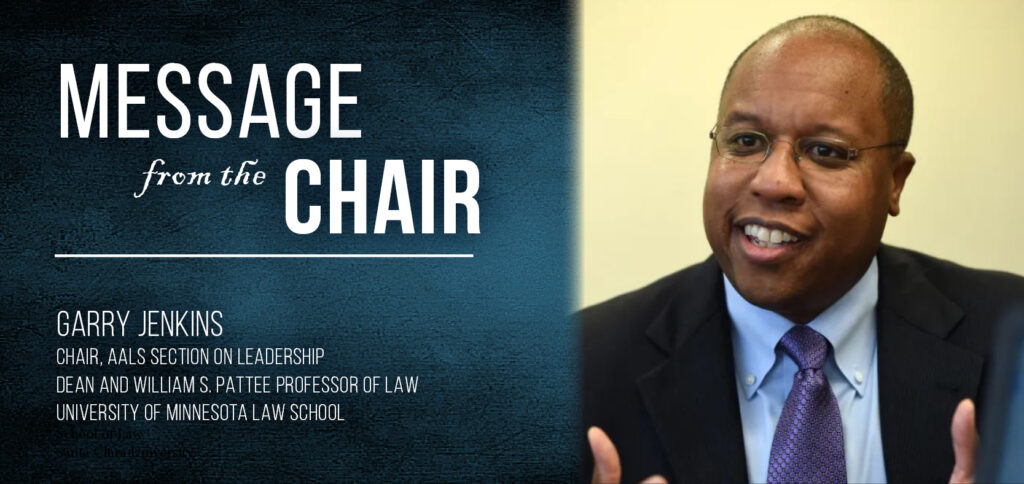Joan MacLeod Heminway | Rick Rose Distinguished Professor of Law
Interim Director, Institute for Professional Leadership
The University of Tennessee College of Law
As an advocate for leadership education in law schools, I often find myself answering questions from faculty and staff colleagues at other law schools about the courses in my institution’s law leadership curriculum and the nature of our co-curricular and extracurricular programs. I am always happy to respond to those inquiries and share syllabi, teaching materials and methods, program ideas, and more. But in the three years that I have been administering the leadership curriculum at The University of Tennessee College of Law, I have come to see more and more clearly that some of the most effective lawyer-leader education is accomplished through one-on-one and small-group engagements with students in office hours and meetings. My evidence is anecdotal, but my observations may resonate. I share a few here.
Teaching leadership in these individual and small-group settings may sound like an inefficient delivery system for law school leadership instruction. If you have that reaction, I understand. I also initially believed that I could impact more students in more ways by teaching them about lawyer leadership in larger classes. And that may well be true. Accordingly, I am not here advocating abandoning lawyer leadership education in that formal, large-group instructional setting. Providing leadership education through traditional classroom teaching provides a compelling, credible, and (in some cases) necessary foundation to personal leadership discovery and development.
Yet, experiences I have had in working with students on leadership strengths, weaknesses, and processes have led me to open my eyes to and think more about the value of personal, customized educational settings in the teaching of lawyer leadership. Ultimately, I have determined that significant, influential, and (yes) efficient lawyer leadership education can and does occur in smaller, less formal instructor-student interactions outside the classroom or other structured academic activity. There is great joy in this type of teaching, which can focus in closely on the specific emergent needs of a student. This teaching environment tends to be a bit more organic and less intimidating than others in law school leadership instruction.
There are two specific contexts in which I have found that individual or small-group lawyer leadership lessons may be particularly efficacious: in response to a non-systemic professional development crisis and in situations involving a need for specific process guidance on a pressing matter. Lawyer leadership, as an aspect of professional identity, can be deeply personal. Both contexts—personal professional development crises and emergent questions relating to a course of conduct—require a deeper, more individualized dive into what may typically be core topics in a foundational course on lawyers as leaders. Said another way, these environments involve contextual, customized applications of leadership principles.
I am sure that many have had the experience of advising law students who are contemplating leaving law school or otherwise altering the course of their professional future. Those conversations can be important settings for the teaching of lawyer leadership, including self-leadership. Counseling and teaching in this setting often involve not only assisting the student in more precisely identifying the root of their professional angst but also linking that root cause to leadership styles, attributes (including character strengths), strategies, and tactics.
No doubt some also may have received law student requests for guidance in overcoming resistance to change or objections to important initiatives. Perhaps the student is facing a challenge to their work from a more senior (or otherwise important) person on a project team. Counseling and teaching in these circumstances may engage matters of leadership process in a frontal way. Core questions asked in these settings may include: “How do I work with others to achieve my professional or personal goals in the face of this opposition? What steps do I take and how do I engage them?”
Teaching in these situations can be challenging, yet very rewarding. Approaches may draw from the full breadth and depth of the educator’s experience. As a result, a variety of instructional methods can be useful. In some circumstances, for example, analogous narratives—storytelling involving others who have faced the same or similar quandaries—can aid in introducing a law student to approaches to consider or reject.
Moreover, as is true in the classroom, the application of concepts discovered or tested through academic research may play a key role in both teaching and learning in these more individualized settings. Again, many common tools in the leadership instructor’s toolkit may be employed successfully. For instance, one can imagine the PERMA theory of well-being from positive psychology coming in handy, or one might instruct on the “feel, felt, found” method of overcoming objections or (as I have written about elsewhere) business management models for leading change.
Finally, it seems relevant to note a side benefit of thinking and talking about the teaching of lawyer leadership individually and in small groups. That side benefit: the prospect that the informal and personal nature of the teaching may encourage more of our colleagues to think of themselves as law leadership instructors and may engage them with lawyer leadership concepts. Student advising is part of the everyday activity of an engaged law professor (including, e.g., counseling on academic projects, course selection, and career development). Recognition of the role these advisory encounters can have in teaching lawyer leadership and using these types of meetings as vehicles for teaching or reinforcements of building blocks for professional development allows for a natural and logical dispersion of the responsibility for leadership instruction across the law faculty.
I hope that many of you will consider focusing on teaching lawyer leadership from your desk chair in addition to teaching lawyer leadership from behind a podium. Personalized law leadership teaching can be a rewarding and powerful experience. It can change student lives.


